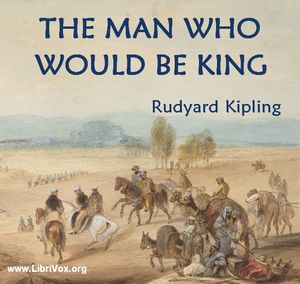Afghanistan's first buzkashi league gets roaring reception
DRAGGING A GOAT CARCASS AROUND, IN THE LAND OF BOY BRIDES AND DOG FIGHTS
 AFP / WAKIL KOHSARHorsemen compete during Afghanistan's first buzkashi league, in Kabul on March 12
AFP / WAKIL KOHSARHorsemen compete during Afghanistan's first buzkashi league, in Kabul on March 12
The fear of terror attacks or coronavirus did little to deter thousands from packing a Kabul stadium Thursday to watch horsemen play polo with a headless goat carcass in Afghanistan's first buzkashi league.
The standing-room-only crowd cheered, hooted and whistled as riders dressed in bright uniforms raced across the muddy field, each man trying to ensure that his team had custody of the 50-kilogramme carcass.
Buzkashi, which means "dragging the goat" in Persian, involves grabbing the carcass, galloping across the field and dropping it into a "circle of justice", drawn in chalk and located at either end of the ground.
"I am here to support my team," said government employee Shafiq Rahman, whose home province of Badakhshan in the northeast was facing off against central Bamiyan province on Thursday -- two of the 14 teams playing in the league.
 AFP / WAKIL KOHSAROrganisers say they want to make the week-long buzkashi league an annual affair, with plans to stage it in different cities each year
AFP / WAKIL KOHSAROrganisers say they want to make the week-long buzkashi league an annual affair, with plans to stage it in different cities each year
"My parents told me not to go because of security concerns but I have a passion for this sport," the 25-year-old told AFP.
"You only live once, you have to enjoy your life," he added.
As hawkers jostled for attention, carrying baskets piled with boiled eggs, samosas, pastries and pomegranate seeds, spectators jeered and laughed when an unfortunate rider fell off his horse, before clambering back on.
Haji Jawad Noori, a chapandaz -- as buzkashi players are known -- with the Kabul team, told AFP the sport was "very difficult".
"You have to be very fast and flexible. The carcass is also very heavy," the 28-year-old said.
 AFP / WAKIL KOHSARThe Taliban banned buzkashi during its five years in power
AFP / WAKIL KOHSARThe Taliban banned buzkashi during its five years in power
Noori, whose family has been in the game for several generations, said the league, which kicked off on Wednesday, represented a landmark moment for buzkashi.
"It's never been played on such a scale. I am very excited to see so many people here," he added.
- Security fears -
Organisers say they want to make the week-long league an annual affair, with plans to stage it in different cities each year.
 AFP / WAKIL KOHSARBuzkashi, which means "dragging the goat" in Persian, involves grabbing the carcass, galloping across the field and dropping it into a "circle of justice"
AFP / WAKIL KOHSARBuzkashi, which means "dragging the goat" in Persian, involves grabbing the carcass, galloping across the field and dropping it into a "circle of justice"
"We want to promote buzkashi. It's our national sport and we want to make it a globally recognised sport," said Ghani Modaqiq, deputy director of state-run RTA channel which has a five-year contract to broadcast the matches live.
Like much else in Afghanistan, the league's success will depend on the security situation -- the Taliban has attacked sporting events in the past and had banned buzkashi during its five years in power.
With the insurgents now poised for a potential comeback, and foreign forces leaving Afghanistan, many are nervous about what that means for the country.
Jawad Taraki's family fled to Kabul from eastern Nangarhar province -- a former stronghold of the Islamic State Group -- in 2018 after his uncle was killed by the jihadists.
But on this frigid Thursday afternoon, as he watched the horses complete a lap of the ground, with snow-flecked mountains looming in the distance and traditional Afghan music playing, those painful memories were far from his mind.
"It's my first time watching buzkashi live... I feel very relaxed being here", he said.
"For a few minutes I could forget about everything else," he told AFP.
"I have been here since morning and I think I will attend matches on the other days as well," he said.
BEFORE THE GOAT CARCASS THEY USED ......

LibriVox recording of The Man Who Would Be King, by Rudyard Kipling.
Read by Philippa. https://archive.org/details/man_wwb_king_0810_librivox
The Man Who Would Be King tells the story of two British adventurers in British India who become kings of Kafiristan, a remote part of Afghanistan. It was inspired by the exploits of James Brooke, an Englishman who became the "white Raja" of Sarawak in Borneo, and by the travels of American adventurer Josiah Harlan, who claimed the title Prince of Ghor.
The story was first published in The Phantom Rickshaw and other Tales (Volume Five of the Indian Railway Library, published by A H Wheeler & Co of Allahabad in 1888). It also appeared in Wee Willie Winkie and Other Stories in 1895, and in numerous later editions of that collection.It is the basis for John Huston’s 1975 film of the same name, starring Sean Connery and Michael Caine as the "kings", and Christopher Plummer as Kipling. (Summary from Wikipedia adapted by Philippa)
For further information, including links to online text, reader information, RSS feeds, CD cover or other formats or languages (if available), please go to the LibriVox catalog page for this recording.
For more free audio books or to become a volunteer reader, visit LibriVox.org.
BBC RADIO DRAMA https://archive.org/details/ManWhoWouldBeKingThe
|
| https://archive.org/details/acn3561.0001.001.umich.edu/page/3/mode/2up |
No comments:
Post a Comment